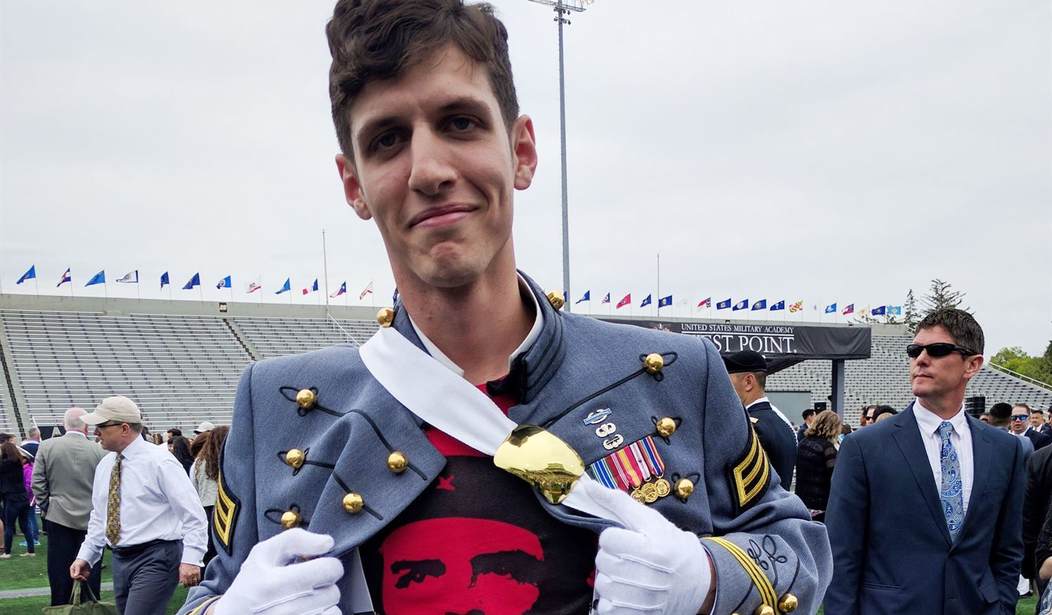While sitting on my porch last week, one of my friends shared a social media post made by a professor at the U.S. Army’s Command and General Staff College (CGSC). The comment, posted by associate professor Ken Long the day after American forces struck Iranian nuclear sites, expressed clear disapproval of the action.
It’s a reality that many military officers—especially faculty at military colleges—tend to lean left of center. Still, this comment from the CGSC professor caught me by surprise. Two issues immediately came to mind. First, the post reflected an ignorance of the president’s authority as commander-in-chief. Many experts have clarified that the president has the legal authority to order limited military engagements without prior congressional authorization. I won’t belabor that point here. But I do question how someone who has spent his entire adult life in the military—as both an officer and now a civilian instructor teaching mid-career officers—can appear unfamiliar with such basic knowledge of the craft. This is the kind of misunderstanding we expect from social media pundits, not seasoned professionals within the military education system.
Now, I actually agree with Professor Long’s concern that modern national leaders avoid formal war declarations and exploit legal loopholes to fuel endless conflicts abroad. Congress hasn’t declared a state of war since December 8, 1941. Since then, America’s military engagements have bypassed the constitutional process of securing the nation’s buy-in through its elected representatives. On that point, I’ll raise a glass to Professor Long. Beyond that, our views diverge.
The second issue is more troubling: the continued presence of a double standard in how political expression is treated within the military. Professor Long feels free to criticize the chain of command—a right protected under the First Amendment. But such freedom doesn’t seem to extend evenly across the ideological spectrum, a point I’ll explain more in a bit. In a separate LinkedIn post, Long alluded to Secretary of Defense Pete Hegseth as a childish actor."

His criticism did not occur in a vacuum. Retired Colonel Peter Im, who directs the Information Advantage Scholars Program at CGSC, "liked" Long’s post regarding the Iran strike—signaling tacit agreement.

Mr. Im’s leftward leanings have also surfaced in his civilian role as a school board member in Lansing, Kansas. He voted against removing curriculum materials that promote divisive DEI philosophies and opposed allowing teachers to raise classroom safety concerns directly with board members—a stance at odds with the Army’s long-standing requirement for leaders to maintain open-door policies.
Professors Long and Im aren’t isolated cases in showing public distaste for the current chain of command. Dr. Pauline Shanks Kaurin recently resigned her post as professor and Admiral James B. Stockdale Chair in Professional Military Ethics at the U.S. Naval War College. Her resignation was prominently featured in The Atlantic—a placement unlikely to have occurred without prior coordination. Kaurin claimed her departure was in protest of the Trump administration curbing academic freedom. Ironically, during the Biden administration, I heard similar complaints—except then, conservative professors and officers were the ones who felt aggressively silenced. That remains true even today. At the time of her public resignation, Kaurin’s X (formerly Twitter) account was locked. A strange contradiction: departing over claims of reduced academic freedom and simultaneously self-censoring.
Leaving an organization for reasons of conscience is an act of conviction. But whether that conviction is righteous or misguided depends on the values involved. I left the Army in late 2023, passing up a lucrative promotion because I could no longer publicly represent and defend as a public affairs officer the ideologies being pushed—ideologies rooted in a cultural revolution marked by the normalization of so-called transgenderism, a fixation on intersectionality, and open hostility toward Christians—who were categorized among extremist movements in many military training sessions.
In contrast, Professor Kaurin leaves the Naval War College because top Department of Defense leadership is directing a return to training focused on restoring a warrior ethos to the ranks. That should pair seamlessly with her academic focus on Just War Theory, philosophy of law, and applied ethics. It would make sense that a professor hired to teach coursework in critical, feminist, or queer theories would find such work difficult in an institution moving away from the worldview of Marx and Hegel, but someone hired to teach the ethics of war? And that is my point about the likely reason Dr. Kaurin is choosing to depart, loudly as activists tend to do.
This resignation mirrors that of Professor Graham Parsons at West Point, who left after the U.S. Military Academy began scaling back coursework that promoted Marxist philosophy to cadets. Back at the Naval War College, another example emerges: Kurt Buckendorf. In the fall of 2024, this senior wargame analyst made practice of trolling on my LinkedIn feed from a hard-left point of view, offering unexpectedly vitriolic comments in what’s billed as a generally more reserved forum. I ran into a former colleague of his since who told me this was par for the course when it comes to this member of the Naval War College Faculty.
RELATED: Pride Month Takes Another Hit With Pete Hegseth's Official Military Ship Announcement
Cry Harder: Liberals Weep and Despots Tremble As America Celebrates Military Greatness Once Again
So, how should we think about all this? I am highly sensitive to the idea of restricting the constitutional rights of those associated with the military. But I also see a glaring double standard that we dare not continue ignoring. Conservative views are stifled or punished, while progressive voices are often amplified or ignored. During my final tour under the same command Long and Im now serve, my views were marginalized. In contrast, derogatory speech toward those who hold a conservative worldview was tolerated—even encouraged. More recently, a friend serving as an officer faced backlash simply for voicing support for Pete Hegseth’s nomination as Secretary of Defense. Others have told me they remain cautious about expressing conservative-aligned viewpoints. We have a system in which saying you support a Republican chain of command puts you at risk of punishment, and castigating it earns the nod of approval. Need I emphasize how dangerous that could be for American security?
Just as left-leaning ideology dominates civilian academia, it permeates military institutions still. This is unsustainable. You cannot cultivate patriotic military leaders under the tutelage of professors who promote the “dismantle and deconstruct” mentality borrowed from their civilian counterparts who are aligned with the poisonous Frankfurt School of thought.
What the military protects informs how it does so, and who takes part in that ongoing mission is affected by what and who are being protected. That’s true right among today’s force that vocalizes fidelity to a vague and abstract idea of constitutionalism, which enables moral debasement to run across the nation nearly unopposed. A fallen military force reflects a fallen society. Yet we would do well to remember that the same can be true in reverse if we restore a properly-ordered sense of One Nation, Under God to our civic, politic, and military standards. So let’s be about that work.















Join the conversation as a VIP Member